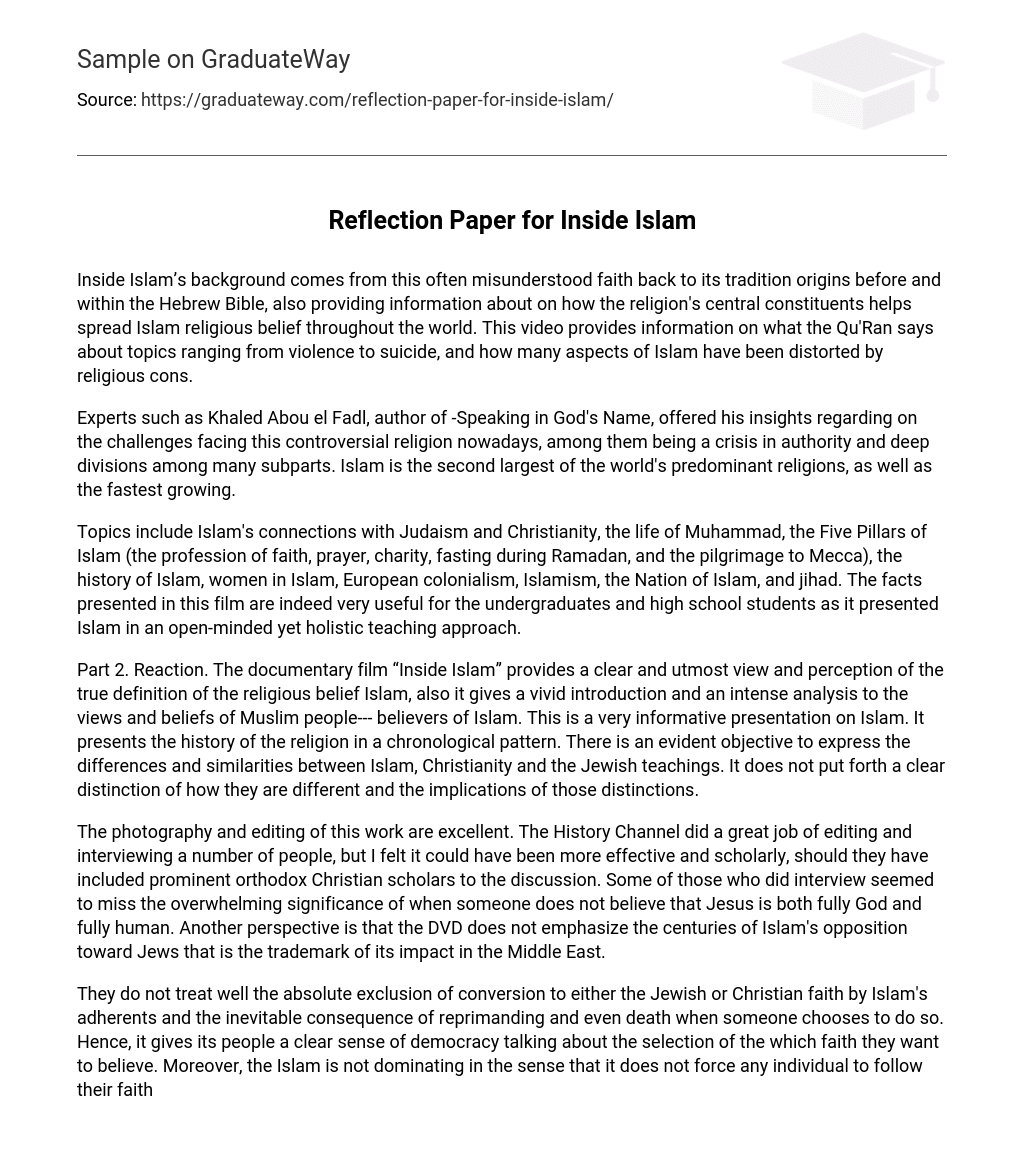Inside Islam’s background comes from this often misunderstood faith back to its tradition origins before and within the Hebrew Bible, also providing information about on how the religion’s central constituents helps spread Islam religious belief throughout the world. This video provides information on what the Qu’Ran says about topics ranging from violence to suicide, and how many aspects of Islam have been distorted by religious cons.
Experts such as Khaled Abou el Fadl, author of -Speaking in God’s Name, offered his insights regarding on the challenges facing this controversial religion nowadays, among them being a crisis in authority and deep divisions among many subparts. Islam is the second largest of the world’s predominant religions, as well as the fastest growing.
Topics include Islam’s connections with Judaism and Christianity, the life of Muhammad, the Five Pillars of Islam (the profession of faith, prayer, charity, fasting during Ramadan, and the pilgrimage to Mecca), the history of Islam, women in Islam, European colonialism, Islamism, the Nation of Islam, and jihad. The facts presented in this film are indeed very useful for the undergraduates and high school students as it presented Islam in an open-minded yet holistic teaching approach.
Part 2. Reaction. The documentary film “Inside Islam” provides a clear and utmost view and perception of the true definition of the religious belief Islam, also it gives a vivid introduction and an intense analysis to the views and beliefs of Muslim people— believers of Islam. This is a very informative presentation on Islam. It presents the history of the religion in a chronological pattern. There is an evident objective to express the differences and similarities between Islam, Christianity and the Jewish teachings. It does not put forth a clear distinction of how they are different and the implications of those distinctions.
The photography and editing of this work are excellent. The History Channel did a great job of editing and interviewing a number of people, but I felt it could have been more effective and scholarly, should they have included prominent orthodox Christian scholars to the discussion. Some of those who did interview seemed to miss the overwhelming significance of when someone does not believe that Jesus is both fully God and fully human. Another perspective is that the DVD does not emphasize the centuries of Islam’s opposition toward Jews that is the trademark of its impact in the Middle East.
They do not treat well the absolute exclusion of conversion to either the Jewish or Christian faith by Islam’s adherents and the inevitable consequence of reprimanding and even death when someone chooses to do so. Hence, it gives its people a clear sense of democracy talking about the selection of the which faith they want to believe. Moreover, the Islam is not dominating in the sense that it does not force any individual to follow their faith especially when it is against one’s will.
One could easily watch the program and come away with the idea that it is one of the three great peaceable religions of the world, of equal merit, just different, from the other to major religions. It postures that Islam is simply a new revelation of the same faith of the same God which originated with the Jews, was further revealed in Christianity, and reached its even more fuller revelation in Islam. This might be a Muslim perspective but would never be that of either orthodox Jews or orthodox Christians. I would recommend it, but leave the caution that it is not as exhaustive in its research as I would like to have seen.





